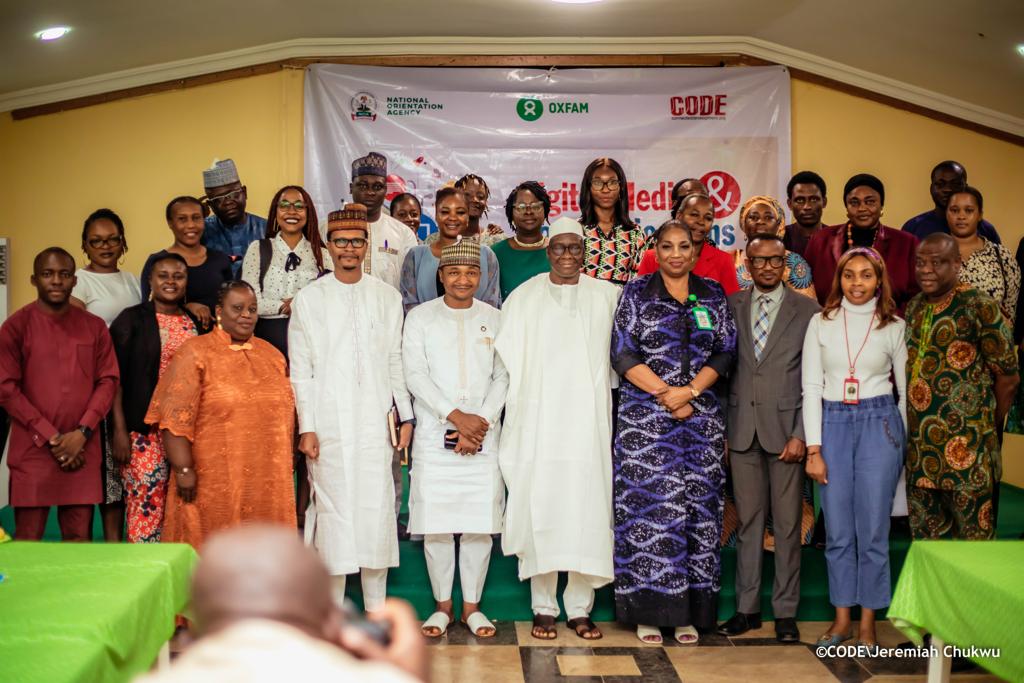
National Human Rights Commission (NHRC) and a Civil Society Organisation, Connected Development (CODE), have expressed concerns over the increasing restrictions of the civic space in the country.
The organisations lamented that the shrinking civic space was making it harder for citizens to keep tabs on those in power, call out abuses, and draw attention to governance failure.
They, therefore, pledged to ensure that the civic space in Nigeria is not forced to shrink.
The stakeholders spoke on Friday in Abuja at a media roundtable organised by Connected Development (CODE), a non-governmental organization, with support from Oxfam, to discuss the importance of civic spaces in Nigeria and to explore ways to expand them.
Participants at the event, which was held at the National Orientation Agency (NOA) headquarters in Abuja, included representatives from civil society organizations, the media, and government agencies.
Speaking, the Chairman of NHRC, Tony Ojukwu, explained that the gains of allowing a free civic space far outweigh efforts at shrinking it.
He said that civic spaces are essential for promoting democracy, good governance, and human rights.
Ojukwu, who was represented by the Director, of Corporate Affairs & External Linkages, Agharese Arase, said: “The Commission is conscious of several bills proposed at the National Assembly in the past for the purpose of shrinking civic space in Nigeria, we shall continue to work with other stakeholders to ensure that the civic space is not forced to shrink, because we believe in the human rights necessary to allow freedom of expression and opinion in a democratic society like ours with diverse groups of different tribes and religion.
“Whereas the social and digital media has been criticised for encroaching on privacy rights and fuelled hate statements, we believe in the sufficiency of our laws for individuals affected to seek civil legal remedies.
“Shrinking civic space may lead to undemocratic practices and lack of transparency in governance.”
Also speaking, the CEO of Connected Development, Hamzat Lawal, observed that the attacks on the civic space are coming from different angles, noting that globally,
several protests by aggrieved citizens have been met with repression.
Stressing the crucial role of civil society in promoting democracy and ensuring accountability, Lawal stated: “Not just in Nigeria but globally, the right to protest is under attack, whether people are mobilising to seek economic justice, democracy, human rights, and environmental action, they’re either met by state actors with brute force or subjected to gross human rights violations.
“Although international human rights law makes it clear people have a right to peaceful protest, many governments are deploying a wide range of tactics to crack down on peaceful protests. In fact, there’s widespread impunity for violations of protest rights.
“However, we see civil society groups actively working to defend protest rights, including by engaging with the UN human rights machinery to expose violations and promote progressive norms on the management of protests.
Director-General of NOA, Dr Garba Abari, highlighted the importance of deepening the civic space in Nigeria, stressing that it was impossible to discuss the expansion of the civic space without touching on deepening the democratic space by making it more inclusive.
“The more democratic we claim to be, the more the civic space becomes concentrated,” he said.



